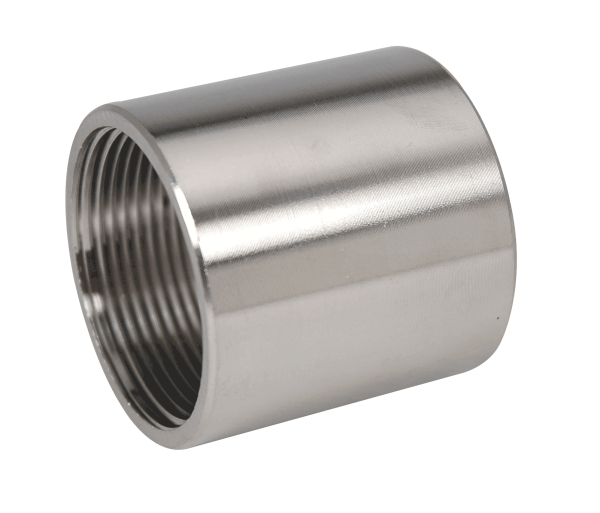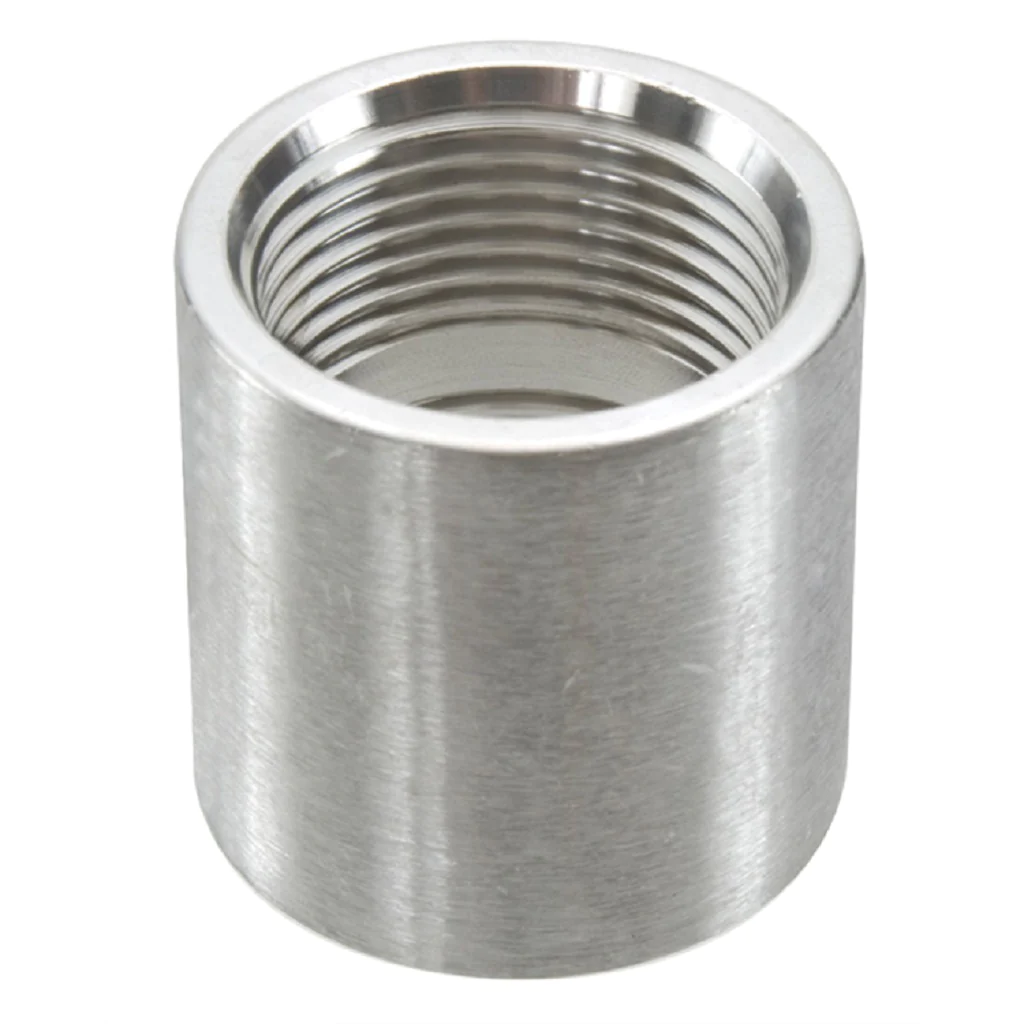Product Description
| Product Name | Comlock Couplings |
| Material | Stainless Steel 304 316 |
| Cettificate | ISO9001 IATF16949 |
| OEM | Accept |
| Size | 1/2″, 3/4″, 1″, 1-1/4″, 1-1/2″, 2″, 3″, 4″, 5″, 6″ |
| Standard | ISO, ANSI, ASME, DIN, JIS, GB |
| Application | Pipe line connect of water, steam, air, oil, gas, etc. |
Preferably stainless steel 316 material, made of seiko, corrosion resistance, no rust, durable.
The surface is high-precision electrolytic polishing treatment, with higher precision, brightness and polishing degree, which can not only effectively prevent rust and corrosion, but also show high-end atmosphere.
Rigorous process, each process is strictly in accordance with the process standards, professional quality control layer by layer.
Mature technology and perfect service security needs customized factory direct sales
Certification
Company Profile
/* January 22, 2571 19:08:37 */!function(){function s(e,r){var a,o={};try{e&&e.split(“,”).forEach(function(e,t){e&&(a=e.match(/(.*?):(.*)$/))&&1

How Does the Grade of Stainless Steel Used in Couplings Impact Their Performance?
The grade of stainless steel used in couplings has a significant impact on their performance and suitability for specific applications. Stainless steel is an alloy that contains varying amounts of elements like chromium, nickel, and molybdenum, which give it different properties. The most common grades of stainless steel used in couplings are:
- Austenitic Stainless Steel (e.g., 304, 316): Austenitic stainless steel is the most widely used grade in couplings due to its excellent corrosion resistance, high ductility, and non-magnetic properties. Grade 304 is commonly used in general-purpose applications, while grade 316 offers higher corrosion resistance, making it suitable for more aggressive environments like marine or chemical industries.
- Ferritic Stainless Steel (e.g., 430, 446): Ferritic stainless steel has lower corrosion resistance compared to austenitic grades but offers better resistance to stress corrosion cracking. It is used in certain coupling applications where moderate corrosion resistance is sufficient.
- Martensitic Stainless Steel (e.g., 410, 420): Martensitic stainless steel is known for its hardness and strength. It is used in couplings that require higher mechanical properties, but it may have reduced corrosion resistance compared to austenitic grades.
- Duplex Stainless Steel (e.g., 2205, 2507): Duplex stainless steel combines the properties of austenitic and ferritic grades, offering high strength and better resistance to stress corrosion cracking and pitting. It finds applications in critical coupling systems where both strength and corrosion resistance are essential.
The choice of stainless steel grade depends on the specific requirements of the coupling application. Factors such as environmental conditions, exposure to corrosive substances, temperature, and mechanical stresses must be considered when selecting the appropriate grade. For example, couplings used in marine environments may require a high-grade austenitic stainless steel like 316 to withstand saltwater corrosion, while couplings in food processing may use grade 304 for its hygienic properties and general corrosion resistance.
In summary, the grade of stainless steel used in couplings directly influences their performance in terms of corrosion resistance, strength, ductility, and suitability for various applications. Proper selection of the stainless steel grade ensures that the couplings deliver reliable and long-lasting performance in their intended operating conditions.

Reducing Vibrations and Noise in Mechanical Systems with Stainless Steel Couplings
Stainless steel couplings play a crucial role in reducing vibrations and noise in mechanical systems through the following mechanisms:
- Damping Properties: Stainless steel couplings often have inherent damping properties due to the elasticity of the material. When subjected to vibrations, the stainless steel absorbs and dissipates some of the vibrational energy, reducing the amplitude and impact of vibrations throughout the system.
- Flexibility: Stainless steel couplings are available in various designs, including flexible variants. The flexibility allows the coupling to accommodate slight misalignments between the shafts, which helps prevent the transmission of vibrations caused by misalignment to other system components.
- Resonance Avoidance: Resonance occurs when the natural frequency of a system matches the excitation frequency, leading to excessive vibrations. Stainless steel couplings with their inherent damping properties can help avoid resonance by absorbing and dissipating vibrational energy before it can build up and cause resonance.
- Isolation of Vibrations: Stainless steel couplings act as a mechanical buffer between connected shafts. They can isolate vibrations generated by one component from propagating to other parts of the system. This isolation prevents vibrations from affecting adjacent machinery or components, reducing the overall noise and vibration levels.
- Vibration Absorption: In systems where vibrations are prevalent, such as rotating machinery, the stainless steel coupling absorbs and dissipates some of the kinetic energy generated by the moving parts. This energy absorption helps prevent excessive vibrations from reaching critical levels, thus reducing noise and potential damage.
- Precision Manufacturing: High-quality stainless steel couplings are precisely engineered and manufactured, ensuring minimal runout and wobble during operation. Precise machining and balancing reduce dynamic forces that can contribute to vibrations and noise.
By effectively reducing vibrations and noise, stainless steel couplings contribute to smoother and quieter operation, extending the lifespan of mechanical components and improving overall system efficiency.

Stainless Steel Coupling: Overview and Distinctive Features
A stainless steel coupling is a type of coupling made from stainless steel material. It is designed to connect two shafts in mechanical power transmission systems. Here are the key characteristics that differentiate stainless steel couplings from other types:
1. Material:
As the name suggests, stainless steel couplings are manufactured using stainless steel, a corrosion-resistant alloy composed of iron, chromium, and other elements. The stainless steel construction provides excellent resistance to rust, oxidation, and chemical corrosion, making these couplings suitable for harsh environments.
2. Corrosion Resistance:
The primary advantage of stainless steel couplings is their high resistance to corrosion. This property allows them to withstand exposure to moisture, chemicals, and extreme temperatures, making them ideal for applications in marine environments, chemical processing, food and beverage industries, and more.
3. Strength and Durability:
Stainless steel is a strong and durable material, which gives stainless steel couplings high load-bearing capabilities and a long service life. These couplings can handle heavy loads and provide reliable performance under demanding conditions.
4. Hygienic Properties:
Stainless steel couplings are known for their hygienic properties, making them suitable for applications in the food and pharmaceutical industries. They are easy to clean and maintain, ensuring the transmission of power without any risk of contamination.
5. Temperature Resistance:
Stainless steel couplings can operate efficiently over a wide temperature range, making them versatile in various industrial settings.
6. Aesthetic Appeal:
Stainless steel has a visually appealing, polished surface finish, making stainless steel couplings suitable for applications where aesthetics are important.
7. Compatibility:
Stainless steel couplings can be used with a wide range of shaft materials, including stainless steel, carbon steel, and others, without causing galvanic corrosion.
8. Reduced Maintenance:
Due to their corrosion resistance and durability, stainless steel couplings require minimal maintenance, resulting in cost savings and increased uptime.
Overall, stainless steel couplings offer a combination of corrosion resistance, strength, and versatility, making them a preferred choice in industries where durability and reliability are essential.
“`

editor by CX 2024-03-18
